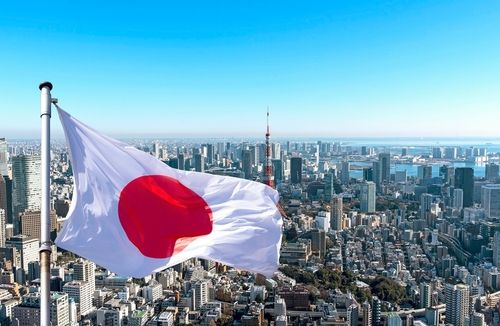Japan’s tough stance on US tariffs threatens to stall trade deal
- Bitcoin Poised For ‘Boring’ 2025 Close – Here’s When BTC’s Real Test Will Come
- TradingKey 2025 Markets Recap & Outlook | Global Central Banks 2025 Recap and 2026 Outlook: Navigating Post-Easing Recovery and Diverging Paths
- Gold Price Hits New High: Has Bitcoin Fully Declined?
- Gold jumps above $4,440 as geopolitical flare, Fed cut bets mount
- Breaking: Gold rises to record high above $4,500 on safe-haven flows
- US Q3 GDP Released, Will US Stocks See a "Santa Claus Rally"?【The week ahead】

Japan’s unwavering demand for the elimination of US tariffs on its automobile exports is casting a shadow over ongoing trade negotiations with Washington, raising concerns about the potential derailment of a comprehensive trade agreement.
Prime Minister Shigeru Ishiba has clarified that Japan will not accept any trade deal that fails to address the Trump administration’s 25% tariffs imposed on Japanese car imports.
These tariffs have significantly impacted Japan’s automotive sector, a cornerstone of its export economy, contributing to a $63 billion trade surplus with the US.
Japan, the US’s largest foreign investor and closest ally in Asia, is eager to strengthen ties with Washington. The Prime Minister initially prioritized securing a spot at the negotiating table before other countries.
However, Tokyo officials highlight that a deal is now unlikely to be reached before the late July elections for Japan’s upper house of parliament, which are already anticipated to be challenging for Ishiba’s already unpopular government.
Japan shifts stance on tariff talks, seeking a favorable deal
Ryosei Akazawa, Japan’s minister of economy, led the country’s negotiators and met twice with the Trump administration’s representatives. Tokyo’s finance minister Katsunobu Kato also plans to talk separately with US Treasury Secretary Scott Bessent during a G7 meeting in Canada next week.
Despite Japan’s strong desire to be the first country to begin tariff talks with Washington, the focus now is on ensuring a favorable deal, according to a Tokyo official with direct knowledge of the talks.
Based on information from officials and analysts concerning Ishiba’s stance, he was forced to reconsider after facing pressure from business leaders and members of his own Liberal Democratic party to reject any deal that endangers the automotive industry or threatens domestic farmers.
Japan’s initial stance is to remove all new US tariffs, including a 25% levy on imports of steel, aluminum, and automobiles and a 24% “reciprocal” tariff on other Japanese goods that has since been temporarily lowered to a 10% baseline level. One of Japan’s initial proposals was to tie percentage-point tariff reductions to the amount of Japanese business investment in the US.
According to company and analyst estimates, the impact of US tariffs on the operating profits of Japan’s major automakers is expected to be around ¥2 trillion, worth about $13.7 billion, in the current fiscal year that ends in March of next year. However, actions like price increases may mitigate the impact. Japan’s economy contracted for the first time in a year in the first quarter.
Japan presses for auto tariff relief
According to a second Japanese official knowledgeable about the negotiations, the largest export market from Japan to the US is automobiles and auto parts. This implies that the auto tariff issue must be addressed during this US-Japan negotiation. The official believes that if the nation is not able to come to any consensus, it will not be able to make progress in this area.
Among the best offers Tokyo could make to Washington are increased buys of American farm products, greater access to markets for American automobiles, and funds for a project to build a pipeline in Alaska for liquefied natural gas.
Nicholas Smith, a Japan strategist at CLSA Securities, stated that Japan is now in a strong position. Shigeru Ishiba has his political career and that of his party to defend; he cannot just roll over. Smith added that cars comprised 81% of Japan’s trade surplus with the US in 2024. If he fails to win lower auto tariffs, PM Ishiba would be on a conveyor belt headed for revolving knives.
However, Ishiba has said he will not cut Japan’s domestic agriculture sector, which employs many people, to accept lower auto tariffs.
The extent of Japan’s influence in the White House was not known. Reliant on Washington for security, Tokyo had a goods trade surplus of over $60 billion with the US in the 2024-2025 fiscal year. Meanwhile, accusations from the Trump administration that Japan is intentionally undervaluing the yen have further complicated negotiations.
Read more
* The content presented above, whether from a third party or not, is considered as general advice only. This article should not be construed as containing investment advice, investment recommendations, an offer of or solicitation for any transactions in financial instruments.

